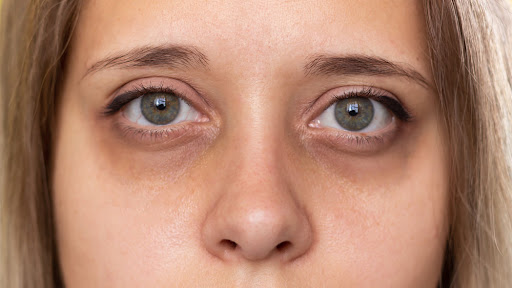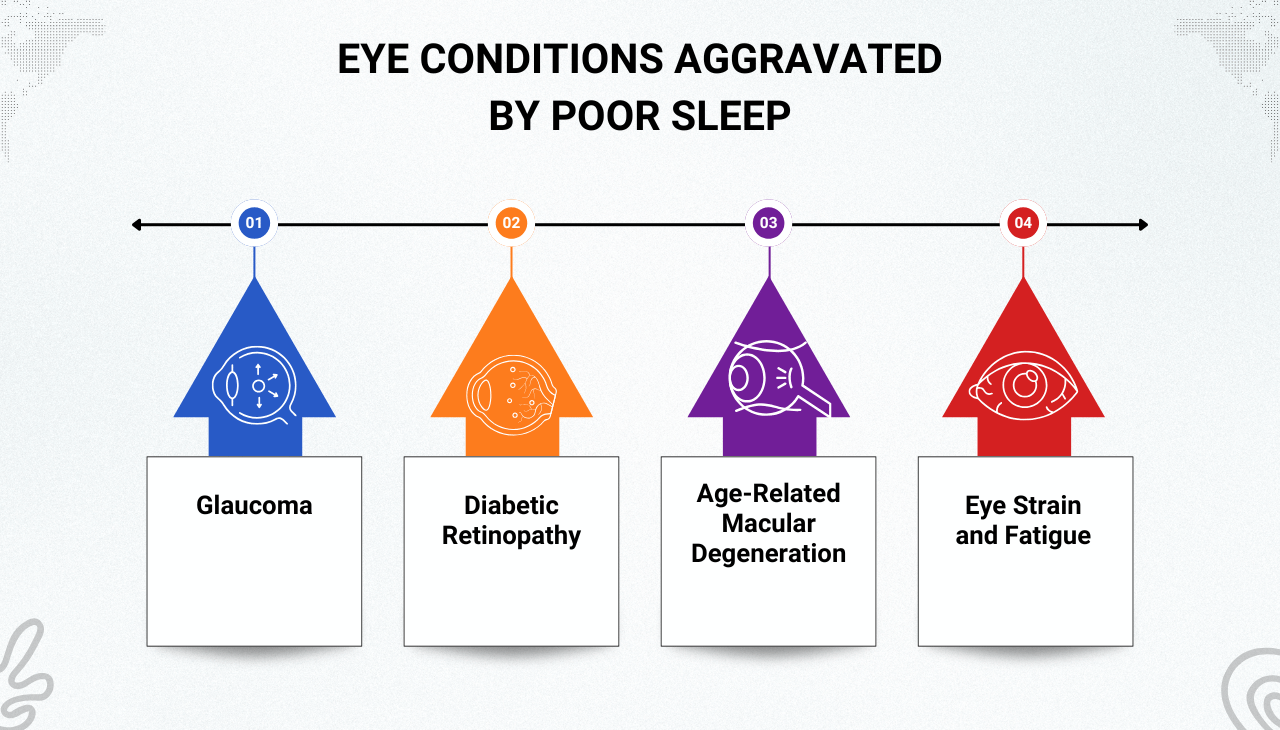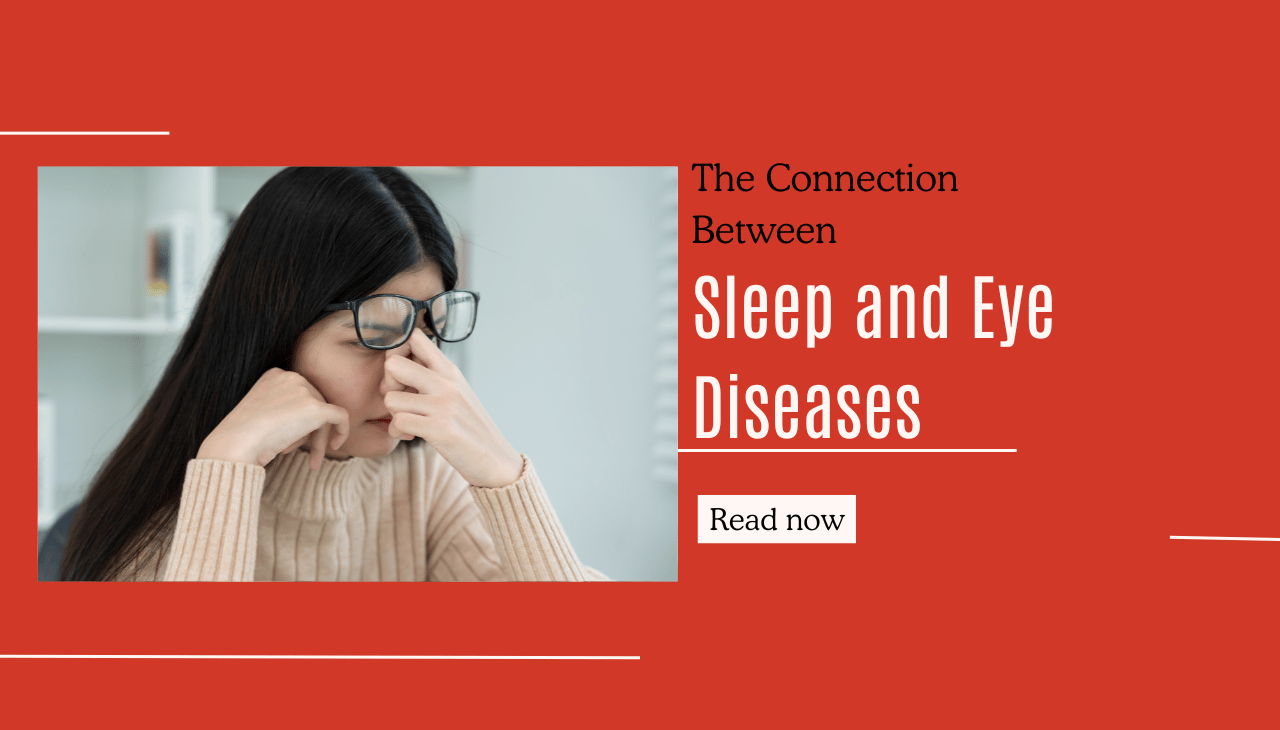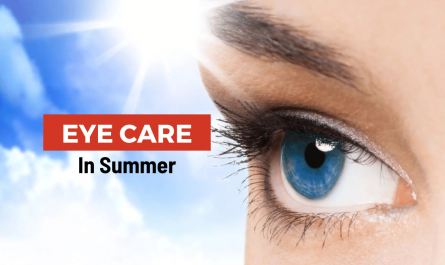Sleep and Eye Diseases
Sleep is essential for overall health, but its impact on eye health is often overlooked. Poor sleep can affect your vision and increase the risk of developing eye-related conditions. Understanding the relationship between sleep and eye health can help you prevent complications and maintain clear vision. This blog explores how sleep influences your eyes, common eye disorders linked to sleep problems, and practical steps to protect your vision.
How Sleep Affects Your Eyes

Sleep is vital for eye function. During sleep, your eyes receive rest and repair. Lack of sleep can cause several immediate effects:
- Dry Eyes: Insufficient sleep reduces tear production, causing dryness, irritation, and redness.
- Eye Twitching: Fatigue from poor sleep can trigger eyelid spasms.
- Blurred Vision: Sleep deprivation can temporarily affect your focus and clarity.
- Reduced Eye Coordination: Tired eyes struggle with coordination, increasing discomfort and vision strain.
Maintaining a proper sleep routine helps your eyes recover from daily stress and reduces the risk of long-term damage.
Sleep Disorders Linked to Eye Diseases
Certain sleep disorders have direct connections to eye health:
- Sleep Apnea
- Interrupted breathing during sleep can lead to lower oxygen levels.
- Increases the risk of glaucoma, a condition that damages the optic nerve.
- Insomnia
- Chronic insomnia can cause eye fatigue and worsen dry eye syndrome.
- Prolonged sleeplessness affects tear production and eye lubrication.
- Circadian Rhythm Disorders
- Disrupted sleep cycles can affect eye pressure regulation.
- Can contribute to vision problems over time.
Regular sleep and proper management of sleep disorders are critical to minimizing these risks.
Eye Conditions Aggravated by Poor Sleep
Lack of sleep or irregular sleep patterns can worsen certain eye conditions:

- Glaucoma: Sleep apnea and irregular sleep can increase intraocular pressure.
- Diabetic Retinopathy: Poor sleep affects blood sugar levels, impacting eye health.
- Age-Related Macular Degeneration (AMD): Disrupted sleep may accelerate degeneration in vulnerable individuals.
- Eye Strain and Fatigue: Sleep deprivation amplifies discomfort from prolonged screen use.
Focusing on sleep hygiene can significantly improve eye comfort and slow the progression of these conditions.
The Role of Sleep in Eye Recovery
During deep sleep, the eyes undergo critical repair processes:
- Retinal cells recover from oxidative stress.
- Tear production stabilizes, improving lubrication.
- Eye muscles relax, reducing strain and tension.
Quality sleep supports overall eye health and reduces susceptibility to diseases.
Tips for Better Eye Health Through Sleep
You can protect your eyes by improving your sleep habits:
- Maintain a consistent sleep schedule.
- Keep your bedroom dark and quiet to enhance sleep quality.
- Limit screen time before bed to reduce eye strain.
- Stay hydrated to support tear production.
- Consider using a humidifier in dry environments.
- Manage sleep disorders with medical guidance.
Simple changes in your sleep routine can have lasting benefits for your vision.
Consultation with Laxmi Eye Hospital
Laxmi Eye Hospital is one of the largest eye hospital chains in Mumbai, with over 30 years of excellence in eye care. The hospital is known for transparency in treatment and highly experienced eye doctors.
Laxmi Eye Hospital offers advanced diagnostics and treatment in areas such as:
- Specs Removal / LASIK (Bladeless LASIK, ICL and IPCL, Contoura Vision LASIK)
- Cataract
- Glaucoma
- Diabetic Eye Care
- Cornea Clinic (Common Corneal Diseases, Keratoconus Management, Eye Donation)
- Retina Treatment
- Pediatric Ophthalmology
Patients can consult specialists at any of these locations:
- Dombivli: 1st Floor, Laxmi Eye Institute, SS Business Park, Gharda Circle, Azde Gaon, Tata Power Company Limited, Dombivli East, Mumbai, Maharashtra 421201
- Kharghar: Office 108, 109 and 110, 1st Floor, Anant CHS Plot 31, Sector 04, Kharghar, Navi Mumbai, Maharashtra 410210
- Panvel: Mulla Hamid Rd, Old Panvel, Panvel, Navi Mumbai, Maharashtra 410206
- Kamothe: Shop No 26/27, Near ICICI Bank, Kamothe, Navi Mumbai Pratik Gardens, Plot No 153 to 165, Sector 34, Maharashtra 410209
Appointments can be booked through the hospital’s website or by visiting the clinics directly.
FAQs
1. Can lack of sleep cause permanent eye damage?
Chronic sleep deprivation can contribute to eye strain and worsen conditions like glaucoma. Early intervention can prevent permanent damage.
2. Does sleep improve vision?
While sleep does not directly improve vision, it allows the eyes to repair and reduces strain, maintaining healthy vision.
3. How many hours of sleep are recommended for eye health?
Most adults need 7–9 hours of sleep per night to support eye and overall health.
4. Can sleep apnea affect eyesight?
Yes. Sleep apnea can reduce oxygen supply to the optic nerve, increasing the risk of glaucoma and other eye problems.
5. Are there exercises to reduce eye strain from poor sleep?
Yes. Eye relaxation exercises, such as focusing on distant objects and blinking regularly, can help alleviate strain.
Sleep and eye health are closely connected. Prioritizing rest not only improves your daily comfort but also protects your eyes from long-term damage. Regular check-ups with experienced ophthalmologists, like those at Laxmi Eye Hospital, ensure that any eye condition related to sleep is identified early and treated effectively. Take care of your sleep, and your eyes will thank you.




